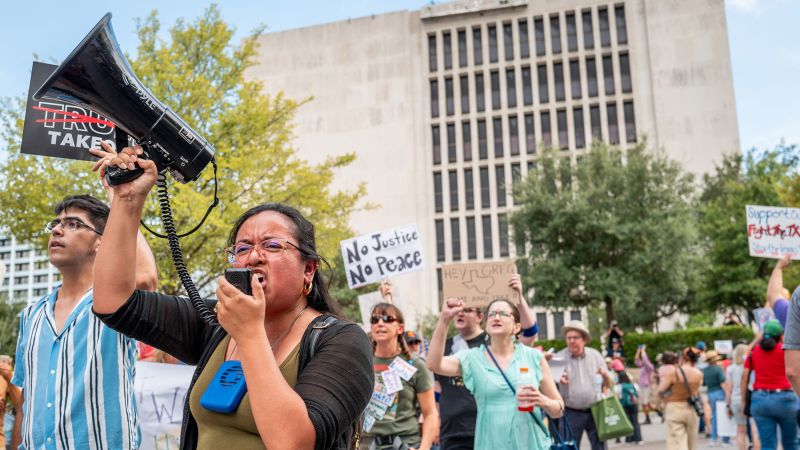The political landscape in Texas is currently embroiled in a fierce debate over proposed congressional redistricting maps that could potentially bolster the Republican Party’s representation in the U.S. House. As the situation unfolds, both Texas Republican and Democratic leaders are intensifying their rhetoric, although substantive progress seems stalled for the moment in Austin. The partisan divide has sparked significant national interest as similar challenges are being contemplated in other states.
In a bold move, numerous Democrats from Texas have elected to leave the state, aiming to obstruct the redistricting process. Their absence from the legislature has not deterred Republican leaders, who are ramping up threats and legal maneuvers. Notably, Governor Greg Abbott has initiated legal proceedings against a Houston lawmaker, seeking to unseat Representative Gene Wu, who has fled to Chicago. In the backdrop, former President Donald Trump has weighed in, asserting that Republicans rightfully deserve five additional House seats in Texas due to demographic shifts.
As tensions increase, the implications of this conflict extend beyond Texas’s borders. States governed by Democrats are welcoming the exiting lawmakers and are constructing their own strategies for redistricting that could have impacts on their congressional representation in response to Texas’s actions. The Biden administration is also keen on potential electoral gains in Republican states like Indiana, where Vice President JD Vance is slated to meet with local officials.
The situation in Texas is further complicated by actions taken by legislative leaders, particularly House Speaker Dustin Burrows, who issued civil arrest warrants for over 50 absent Democrat lawmakers. Through ongoing communication with the Texas Department of Public Safety, Burrows noted that law enforcement would require some time to act, pushing any immediate attempts at moving forward with redistricting until a set time on Friday at 2 p.m. EDT.
Attorney General Ken Paxton, a staunch ally of Trump, promptly responded to the unfolding drama by declaring his intention to seek a court ruling that would classify the seats of absent Democrats as vacant. Wu rebutted these actions by accusing Abbott of abusing legal mechanisms as a means to suppress dissent, standing firm in his commitment to represent his constituents’ interests, regardless of personal cost or sacrifice.
Texas lawmakers are grappling with the repercussions of these absences. Besides the legal and procedural hurdles of redistricting, the state’s House rules allow for daily fines against lawmakers who do not attend sessions. Republican leaders, concerned about the backlash from their base, are under pressure to escalate their responses. Representative Brian Harrison criticized GOP leadership for not taking more decisive actions, suggesting they had squandered a key opportunity when Democrats were present in the chamber.
The Democratic lawmakers who have vacated the state remain resolute in their stance not to return, rendering the legislative process for new maps effectively stalled. Those remaining in Austin are wary, with some, like Rep. Richard Peña Raymond, signaling that the history of quorum breaks gives them pause. Colorado’s previous experiences underline the uncertain duration of these boycotts, with past attempts often yielding diminishing returns over time.
Meanwhile, as legislators negotiate their next steps, concerns about the legality and consequences of the actions taken are bubbling below the surface. Notably, legal experts have raised questions about the enforceability of arrest warrants issued for absent lawmakers outside Texas. Furthermore, the legitimacy of Governor Abbott’s claim regarding the abandonment of office due to departure from the state remains contested.
With experts like Chad Dunn and constitutional law scholars weighing in, a complicated legal battle may lie ahead. There is widespread skepticism about the state’s ability to prove that absent lawmakers have neglected their duties or intended to vacate their positions. Factors such as purpose and intent in refusing to form a quorum to prevent discriminatory laws from passing could carry substantial weight in legal deliberations.
This conflict illustrates the deep polarization not only within Texas but across the nation as states grapple with the implications of redistricting, voter representation, and legislative integrity. The unfolding scenario may set critical precedents that resonate far beyond Texas’s borders, shaping the partisan dynamics as the 2024 elections approach.











